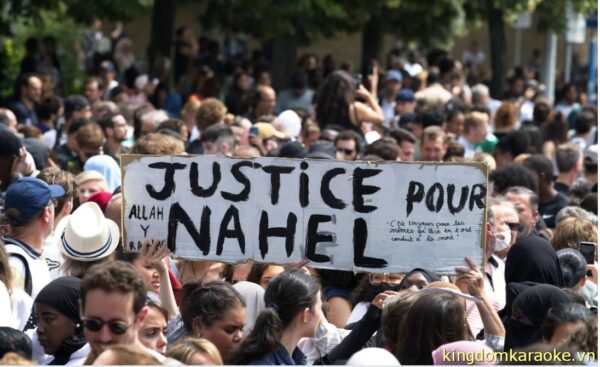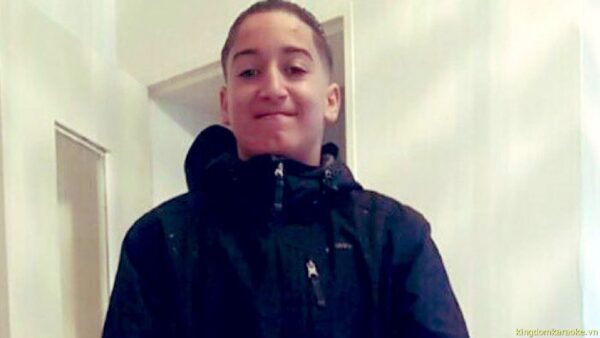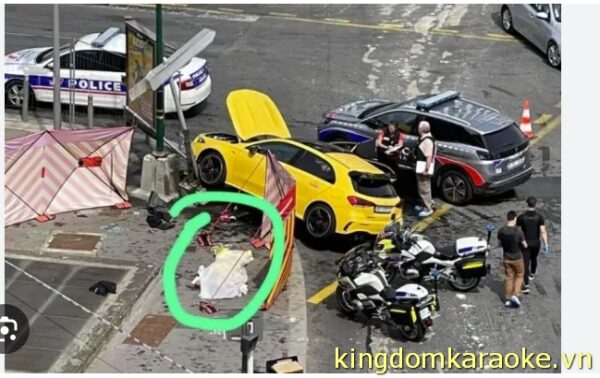The Nahel Merzouk Incident: Police Violence, Protests, and Calls for Reform

The killing of Nahel Merzouk, a 17-year-old French-Algerian teenager, by a police officer in Nanterre, a suburb of Paris, France, on June 27, 2023, has sparked widespread outrage and ignited a series of protests and riots. This tragic event has shed light on the issue of police violence in France, particularly towards individuals of black or Maghrebi origin, leading to allegations of systemic racism within the country’s police system. The Nahel Merzouk incident has not only exposed the need for justice in this specific case but has also amplified the calls for comprehensive police reform and accountability. This article explores the background of police violence in France, the immediate reactions to the killing, diverging narratives and investigations, the subsequent protests and unrest, as well as the national and international responses to this alarming incident. The Nahel Merzouk incident has become a catalyst for a broader discussion on the excessive use of force by law enforcement and the urgent need for change. Stay tuned on Kingdomkaraoke.vn

I. The Nahel Merzouk Incident: Summary
On June 27, 2023, Nahel Merzouk, a 17-year-old French-Algerian teenager, was shot and killed by a police officer during a traffic stop in Nanterre, a suburb of Paris. The incident occurred after a car chase, during which Nahel’s vehicle committed multiple traffic violations, endangering pedestrians and cyclists.

According to the police’s initial version of events, the officers activated their warning signals and instructed Nahel to stop at a red traffic light. However, Nahel’s vehicle accelerated and ran the red light, prompting the officers to pursue him. The police officers claimed that Nahel’s car posed a threat to their safety, leading one officer to fire a shot at the driver.
Here is the video people!
The French police are begging "Nahel M" to cooperate and he stomps on the gas. A cop is hit by his car and fires his gun.
What do you think now? Did Macron lie and pour gasoline on a fire? Is the media lying? pic.twitter.com/RjdLN3R5Go
— National Conservative (@NatCon2022) June 29, 2023
However, a video that circulated on social media contradicted the police’s account. The footage showed that the car was not in a position to harm the officers and was driving slowly when the fatal shot was fired. This evidence challenged the police’s claim of self-defense and raised concerns about the excessive use of force.

The Nahel Merzouk incident brought attention to the broader issue of police violence and systemic racism within the French police system. It prompted calls for police reform and accountability from politicians, human rights organizations, and the international community.
The tragic death of Nahel Merzouk and the subsequent events surrounding the incident underscored the urgent need for a comprehensive examination of police practices, policies, and the protection of individual rights in France.
II. Immediate Reactions to the Killing
The killing of Nahel Merzouk sparked immediate reactions from various individuals and groups, both within France and internationally. The incident and its aftermath prompted a range of emotions, including grief, outrage, and calls for justice. Here are some of the key immediate reactions:
- President Macron’s Critique: French President Emmanuel Macron broke from the usual reluctance of government officials to criticize law enforcement and declared the incident “inexcusable and unforgivable.” His strong condemnation of the killing was noted as a rare critique of French police from the government.
- Support from Public Figures: French football player Kylian Mbappé and actor/comedian Omar Sy were among the public figures who expressed their condolences to Nahel’s family and denounced the incident as unacceptable. Their public statements brought attention to the case and highlighted the need for accountability.
- Call for Protests: Nahel’s mother, Mounia, took to TikTok to call for a protest in her son’s memory, urging people to join her in a “revolt for my son.” Her call resonated with many individuals who were outraged by the killing and sought justice for Nahel.

nahel merzouk incident
- Criticism of Media Coverage: Some media outlets, including Le Parisien and BFM TV, faced criticism for initially relaying the police’s account of the incident without caution or skepticism. As video evidence emerged contradicting the police’s version, these outlets were accused of sensationalism and contributing to a distorted narrative.
- Political Reactions: Left-wing politician Jean-Luc Melenchon called for police reform in response to Nahel’s killing, highlighting the need to address systemic issues within the French police system. On the other hand, conservative politician Eric Ciotti expressed support for the police, defending them as defenders of collective security.
- International Attention: The Office of the United Nations High Commissioner for Human Rights called on France to address systemic racism within its police forces and urged peaceful protests. The Algerian Ministry of Foreign Affairs also expressed shock and consternation over Nahel’s death, emphasizing the need for the French government to ensure the safety of Algerian nationals.
The immediate reactions to Nahel Merzouk’s killing reflected a broad spectrum of opinions, with some demanding justice and police reform, while others expressed support for law enforcement. These reactions set the stage for further developments, including protests and government responses, in the wake of the incident.
III. Diverging Narratives and Investigations
Following the killing of Nahel Merzouk, diverging narratives emerged regarding the circumstances of the incident. These conflicting accounts created a need for thorough investigations to uncover the truth and determine accountability. Here are the key aspects of the diverging narratives and ongoing investigations:
- Police Version Contradicted by Video Evidence: Initially, the police claimed that the officer fired his weapon in self-defense as Nahel was about to run him over. However, a video that went viral on social media contradicted this narrative. The footage showed that the car was not in a position to harm the officers and was driving slowly when the shot was fired. The video cast doubt on the police’s claim of self-defense.
- Third Passenger’s Testimony: A third passenger who was aboard the Mercedes testified that Nahel had received several “buttstrokes” from the police. According to this witness, one of the buttstrokes caused Nahel to release the brake pedal, resulting in the car moving forward. This testimony differed from the police’s account and raised questions about the use of force and the actions leading up to the shooting.
- Investigations Launched: Two separate investigations were initiated in response to the incident. The first investigation focused on the charges of “refusal to comply” and “attempted voluntary homicide against a person in authority.” The second investigation, assigned to the General Inspectorate of the National Police (IGPN), specifically looked into the charge of “voluntary homicide by a person in authority.” These investigations aimed to establish a comprehensive understanding of the events and determine the legal implications for those involved.
- Questioning of Police Practices: The killing of Nahel Merzouk brought attention to broader issues of police practices in France. The incident raised concerns about the excessive use of force, racial profiling, and systemic racism within the French police system. Calls for police reform and accountability gained momentum, as the incident became a focal point for discussions about the relationship between law enforcement and marginalized communities.
- Criticism of Media Coverage: Some media outlets, such as Le Parisien and BFM TV, initially uncritically relayed the police’s version of events before changing their narrative in response to the video evidence and pressure from other media sources. Their handling of the incident drew criticism for potentially contributing to biased reporting and failing to critically examine official accounts.
As investigations into Nahel Merzouk incident unfolded, the diverging narratives highlighted the need for a thorough and impartial examination of the evidence. The ongoing investigations aimed to provide clarity and accountability, while also prompting broader discussions about police practices and systemic issues within the French law enforcement system.
IV. National and International Response
The Nahel Merzouk incident sparked significant political reactions both within France and internationally. The incident prompted calls for police reform and accountability, leading to a broader discussion about systemic issues within the French law enforcement system. Additionally, international organizations, such as the United Nations Human Rights Council, and the Algerian Ministry of Foreign Affairs, also responded to the incident.
- Calls for Police Reform: Political figures within France, including left-wing politician Jean-Luc Melenchon, called for police reform in response to Nahel’s killing. These calls aimed to address concerns about excessive use of force, racial profiling, and systemic racism within the French police system. The incident became a catalyst for renewed discussions and demands for changes in law enforcement practices to ensure accountability and protection of citizens’ rights.
- International Organizations’ Response: The United Nations Human Rights Council expressed concern over systemic racism within the French police forces and called for measures to address the excessive use of force during demonstrations. The involvement of international organizations highlighted the global significance of the issue and put pressure on the French government to address these concerns.
- Algerian Ministry of Foreign Affairs: The Algerian Ministry of Foreign Affairs issued a statement expressing shock and consternation over Nahel Merzouk’s killing. They called for the French government to assume its duty of protection and security for Algerian nationals on French territory. The involvement of the Algerian government emphasized the impact of the incident on international relations and drew attention to the need for justice and protection of all individuals, regardless of their nationality.
V. Conclusion
The Nahel Merzouk incident in France brought to light the issue of police violence and raised concerns about systemic racism within the country’s law enforcement system. The incident triggered immediate reactions, including public outcry, protests, and riots. Diverging narratives and ongoing investigations highlighted the need for a comprehensive examination of the evidence to establish the truth and ensure accountability.
Political figures and international organizations called for police reform and addressed broader issues of excessive use of force, racial profiling, and systemic racism. The involvement of the Algerian Ministry of Foreign Affairs underscored the international significance of the incident and the importance of protecting the rights and safety of all individuals.
The killing of Nahel Merzouk served as a catalyst for discussions and actions aimed at addressing these issues within the French society and law enforcement. It remains to be seen how the investigations will unfold and what measures will be taken to address the concerns raised by this tragic event.






